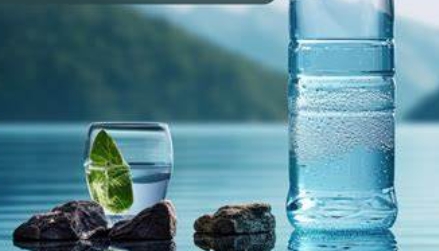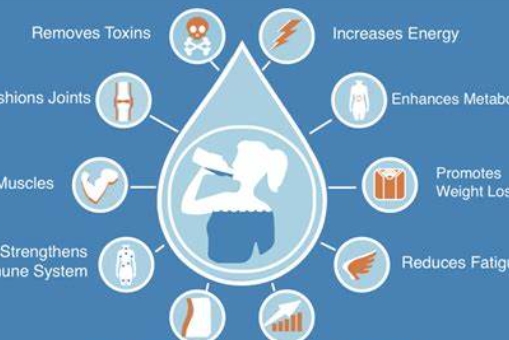Water is the essence of life, and staying hydrated is essential for maintaining good health. Every cell, tissue, and organ in the body relies on water to function properly, and dehydration can lead to a host of health issues. While it’s widely known that drinking water is important, the significance of staying adequately hydrated goes far beyond just quenching thirst. Proper hydration is crucial for digestion, detoxification, energy levels, mental clarity, and overall well-being. This article will explore the importance of hydration and how it supports various aspects of health.
The Role of Water in the Body
Water makes up approximately 60% of the human body, and it plays an integral role in many physiological processes. It helps transport nutrients and oxygen to cells, regulate body temperature, support digestion, and flush out waste through urine and sweat. Water is also involved in joint lubrication, cellular communication, and maintaining electrolyte balance.
One of the most important functions of water is its role in digestion. Water aids in breaking down food so that your body can absorb essential nutrients. It helps dissolve nutrients and move them through the gastrointestinal tract, preventing constipation and promoting regular bowel movements. Drinking enough water also helps prevent digestive discomfort like bloating, indigestion, and heartburn.
In addition to supporting digestion, water is vital for detoxification. The kidneys rely on water to filter waste products and toxins from the blood, flushing them out through urine. Adequate hydration supports the kidneys in doing their job efficiently, which helps prevent kidney stones and other renal issues. Drinking water also helps the liver process and eliminate toxins, reducing the burden on your body’s detoxification organs.
Hydration and Energy Levels
Dehydration can have a significant impact on your energy levels and overall vitality. Even mild dehydration can cause fatigue, sluggishness, and a decrease in physical performance. When you’re dehydrated, your blood volume decreases, making it harder for your heart to pump oxygen and nutrients to your muscles and organs. As a result, you may experience a drop in energy, making it harder to concentrate or stay active.
When you’re properly hydrated, your body functions more efficiently, and your energy levels remain stable throughout the day. Staying hydrated is particularly important for maintaining physical performance, whether you’re exercising, working, or just going about your daily tasks. Drinking water before, during, and after physical activity helps replenish lost fluids and ensures optimal muscle function.
Hydration and Mental Clarity
The impact of hydration on mental clarity and cognitive function is equally important. The brain is made up of around 75% water, so even slight dehydration can affect your ability to think clearly, concentrate, and make decisions. When you’re dehydrated, you may experience symptoms like brain fog, difficulty focusing, and memory lapses.
Drinking enough water helps maintain optimal brain function by ensuring that it receives the oxygen and nutrients it needs to operate effectively. Hydrated brains are sharper, more focused, and more able to handle complex tasks. Staying hydrated also helps improve mood, reduce stress, and combat feelings of anxiety or irritability, making hydration a key factor in maintaining mental health.
Hydration and Skin Health
Your skin is your largest organ, and it relies on proper hydration to maintain its elasticity, glow, and youthful appearance. Dehydrated skin may appear dull, dry, or flaky, and it’s more prone to wrinkles and irritation. Water helps flush out toxins, reducing the likelihood of skin breakouts and other issues caused by internal imbalances.
Drinking water helps maintain skin moisture, supports the production of collagen (which keeps the skin firm and smooth), and improves blood circulation, giving your skin a healthy, radiant appearance. Hydrated skin is also better able to recover from external irritants, such as sun exposure or pollution, making water essential for maintaining a youthful complexion.
How Much Water Should You Drink?
The amount of water you need to drink can vary based on factors like age, activity level, climate, and overall health. A common recommendation is to drink eight 8-ounce glasses of water per day, known as the “8×8” rule. However, some people may need more or less than this depending on their specific needs.
A general guideline is to drink enough water so that your urine is pale yellow. Dark-colored urine is a sign of dehydration, while clear urine suggests that you’re adequately hydrated. Keep in mind that your hydration needs also come from the foods you eat, especially fruits and vegetables, which contain high amounts of water. Additionally, beverages like tea, coffee, and milk contribute to your overall fluid intake.
Signs of Dehydration
Dehydration can range from mild to severe, and it’s important to recognize the signs early so you can address them before they lead to serious health issues. Some common signs of dehydration include:
- Thirst – The body’s natural signal that it needs more water.
- Dry mouth and dry skin – Both can indicate a lack of fluids.
- Dark urine or reduced urine output – This is often a sign that your body is conserving water.
- Fatigue and dizziness – Dehydration can make you feel tired, lightheaded, or weak.
- Headaches – A common side effect of dehydration.
Severe dehydration can lead to more serious symptoms, including confusion, rapid heartbeat, and fainting. If you experience these symptoms, it’s important to seek medical attention immediately.
Tips for Staying Hydrated
To ensure that you stay properly hydrated throughout the day, here are a few tips:
- Carry a water bottle with you wherever you go to make it easier to drink water consistently.
- Drink water before, during, and after exercise to replace fluids lost through sweat.
- Set reminders to drink water if you tend to forget.
- Eat water-rich foods such as cucumbers, watermelon, oranges, and strawberries to boost your hydration.
- Limit sugary and caffeinated beverages, as they can contribute to dehydration.
In conclusion, hydration is a cornerstone of health. It impacts everything from digestion and detoxification to energy levels, cognitive function, skin health, and beyond. Ensuring that you drink enough water each day can improve your overall well-being, help you feel more energized, and even enhance your appearance. By making hydration a priority, you’ll be supporting your body in functioning at its best.





